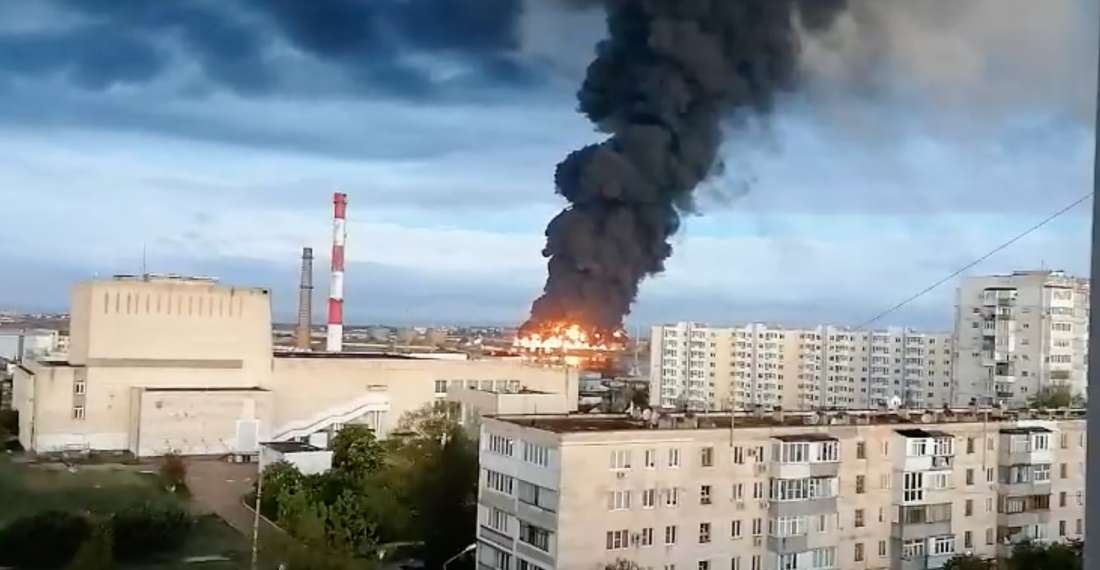Russia's Bryansk Oblast that borders Ukraine's north-east has now seen two railway derailments in as many days, both reportedly as a result of sabotage.
On Monday (1 May), Bryansk Oblast Governor Alexander Bogomaz published a post on his Telegram channel announcing that "an unidentified explosive device" detonated near railway tracks, derailing the train and resulting in the suspension of rail traffic in the area.
Overnight on Sunday (30 April), overhead powerlines in Russia's Leningrad Oblast were also blown up, although power supply to populated areas and civil infrastructure was allegedly not disrupted.
Then, yesterday on Tuesday (2 May), Russian media reported a second supposed railway sabotage in Bryansk Oblast in as many days. Governor Bogomaz said that railway lines had been blown up near Snezhetskaya station, derailing a locomotive and approximately 20 freight cars.
Being critical for logistical operations in their full-scale invasion of Ukraine, railways in Russia's border regions have frequently been targets of suspected sabotage during the ongoing war.
Oil depot explosions in Krasnodar Oblast and occupied Crimea
Early in the morning of Wednesday (3 May), reports emerged of a fire breaking out at a fuel storage facility in the village of Volna, in Russia's southwestern region of Krasnodar, only some 10km away from the Crimean Bridge.
Photos and videos emerged on social media showing large oil tanks on fire, with regional governor Veniamin Kondratyev saying that the fire "has been classified as the highest rank of difficulty". The cause of the fire is not yet known.
This comes days after an oil depot in Russian-occupied Crimea caught fire on Saturday (29 April). The oil depot at Kozacha Bay in Sevastopol was reportedly the target of a Ukrainian drone strike. Photos and videos also emerged on social media showing the entire depot in flames, and a huge cloud of black smoke rising above the city.
On that occasion, the Ukraine's Armed Forces' Southern Command spokesperson Natalia Humeniuk confirmed that the fire in Sevastopol was part of "preparations" for Ukraine's upcoming counteroffensive.
Further overnight drone strikes on Ukraine
Overnight on Tuesday (2 May), Russia launched another wave of drone strikes against Ukraine.
According to the Ukrainian Air Force, 21 out of 26 Iranian Shahed drones were shot down. There were however successful strikes against the cities of Dnipro and Kropyvnytskyi.






